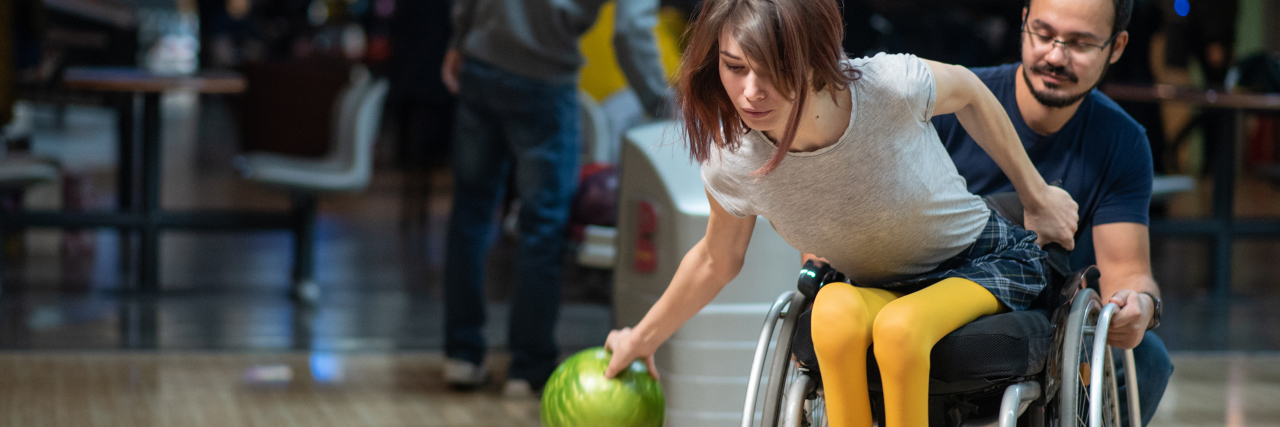Why I Prefer to Be Called 'Disabled,' Not a 'Person With a Disability'
Editor's Note
Check out The Pencil Case group on The Mighty app for creative self-care and connection (journaling, affirmations and more!).
Language can be a defining feature within any community, but it’s especially the case within the disability community. Language surrounding disability has evolved so much over time that it is not surprising when some people seem shocked that certain terms are outdated. Language changes and evolves in the blink of an eye, and it can be hard to keep up.
As a member of the disability community, I’ve heard the following terms used to describe people with disabilities: “handicapped,” “special needs,” “disabled,” and “person-first language” (i.e. person with a disability vs. disabled person), among many others. Prior to becoming more involved in the disability community and finding my voice as an advocate, I was a big supporter of person-first language. When I was younger, I ran as far away from identifying as someone with a disability as I could get because I was ashamed. I hated that I was different. All I wanted was to be “normal” like everyone else.
However, as I became more involved in supporting and advocating for the disability community, I realized my disability wasn’t something to be ashamed of. It was my superpower. It was something I could use to create change. Within my career field of social work, social justice and social change is the foundation the field was built on. So when I began to realize I could use my voice as a member of the disability community to create change, my whole perspective on language within the community shifted. I no longer shied away from the idea that I was part of the largest minority in the world. It was something I was proud of, and I wanted every person I came into contact with to know that.
Please know that I understand the desire to use person-first language. It was created by people with intellectual disabilities and parents of kids with disabilities who wanted their child to be recognized/seen first as opposed to their disability. I wholeheartedly understand the importance of that. People are people first. They shouldn’t be only identified within the context of their disability. And for some people within the disability community, person-first language is what they prefer and feel most comfortable with. That’s fine. It’s their choice.
I’ll be honest though. Certain language within the disability community rubs me the wrong way. For example, I don’t like the term “handicapped.” It’s derogatory and just makes me squirm. In my opinion, it’s outdated. I feel similarly about “special needs.” In my opinion, the needs of people with disabilities aren’t “special.” They are simply supports and tools to put people with disabilities on an equal playing field as their non-disabled counterparts. That’s not “special.” That’s called equality, and it’s what every person deserves.
From my perspective, I am part of the disability community. I identify as a disabled person. Calling myself disabled marks my membership within a community that I am proud to be part of. My disability is part of my identity. It’s not the only part, but it’s a significant piece, so I want to recognize that and celebrate it. So yes, I’m disabled, and I’m proud!
I think people shy away from using the term disabled because they don’t want to accidentally offend someone. So here’s how you fix that: ask the person with the disability how they prefer to be described. Maybe they prefer person-first language; maybe they are more comfortable with the term “special needs.” My point: ask them. It’s entirely their choice to make, and it’s your job to respect that choice, no matter if you agree with it or not.
Follow this journey on the author’s blog.
Getty image by Marko Rupena.

